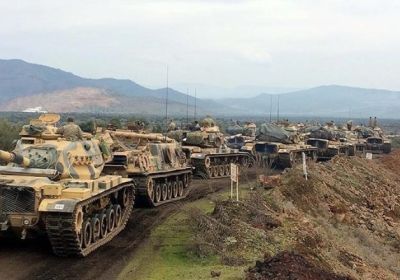
The Kurdish Red Crescent reported on February 27 that at least 348 civilians had died in the conflict begun by Turkey’s January 20 invasion of northern Syria’s small enclave of Afrin.

The Kurdish Red Crescent reported on February 27 that at least 348 civilians had died in the conflict begun by Turkey’s January 20 invasion of northern Syria’s small enclave of Afrin.
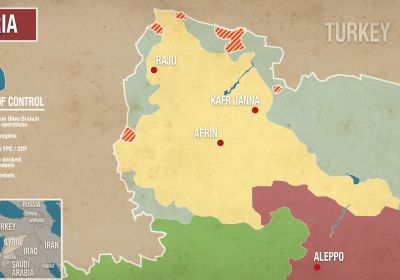
The Afrin canton in Northern Syria is under sustained assault from invading Turkish forces and allied Islamist gangs.
The Turkish invasion, accompanied by reports of massacres and use of chemical weapons, aims to destroy the progressive, democratic Kurdish-led revolution in Syria’s north, which places women’s liberation at its centre.
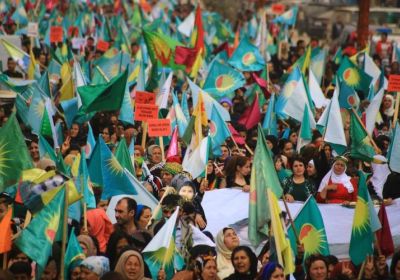
Northern Syria (also known by its Kurdish name of “Rojava”) has been the scene of a social revolution with women’s liberation at its centre in recent years. However, it has come under constant attack.
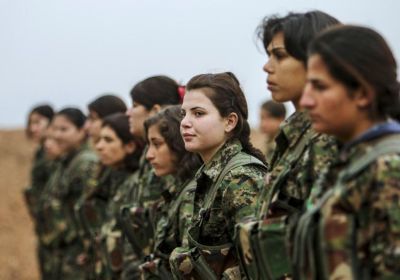
Women from the Tirbesipiye-Cizire Canton in northern Syria (known as “Rojava” in Kurdish) held a women-only demonstration through the city centre on February 9.
The marchers expressed their support for the resistance by women and others in the Afrin canton in Rojava against the fascist invasion from Turkey and Islamic gangs, which began last month — and in support of the feminist, multi-ethnic Rojava Revolution.
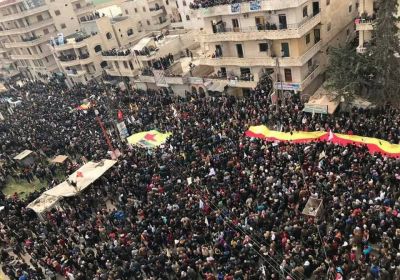
Thousands of solidarity activists from all across the Democratic Federation of Northern Syria defied a threat of bombardment by the Turkish State on February 6 to stand in solidarity with the resistance in Afrin.
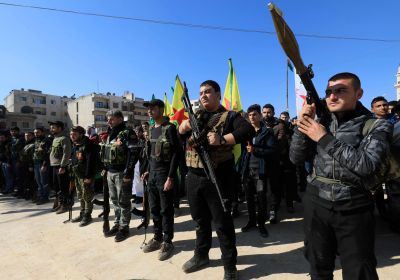
On January 20, Turkey launched an invasion of Afrin, one of the three cantons that make up the Democratic Federation of Northern Syria (also known as Rojava), the site of a profound, Kurdish-led social revolution based on multi-ethnic participatory democracy and women’s liberation.
The invasion has killed dozens of civilians in an area that has welcomed hundreds of thousands of refugees from Syria’s conflict. Turkey’s actions would be impossible without at least passive acceptance from several great powers active in Syria. Cihad Hammy looks at the motivations for various major players.
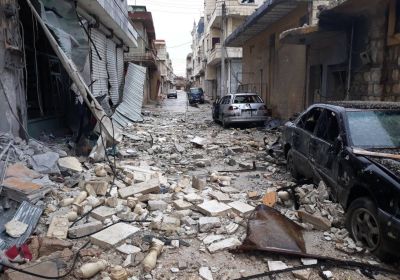
The dark clouds of 21st-century fascism are once again hanging over the heads of the people of northern Syria. As if the inhabitants of the region often referred to as Rojava haven’t suffered enough over the course of the past 7 years of war, the Turkish state has come to the conclusion that the time is ripe to pick up the fallen, bloodied sword from the corpse that is Islamic State.
Together with Salafist mercenaries carrying flags of the Syrian ‘rebels’ – one of the many components of what at one historical juncture seemingly all so long ago was a cohesive ‘Free Syrian Army’ – Erdogan’s regime vows a ‘swift operation’ to destroy ‘terrorism’ in Afrin.
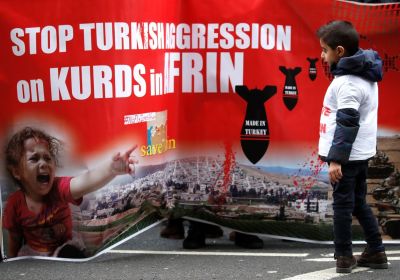
The left-wing Peoples’ Democratic Party (HDP) has condemned Turkey’s invasion of the Afrin region in northern Syria (known as Rojava in Kurdish) in collaboration with mostly jihadi Syrian militias.
The HDP, with strong roots in Turkey’s Kurdish minority, has itself faced worsening repression from the regime of President Recep Tayyip Erdogan.